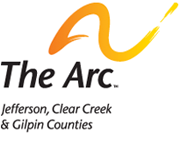Video Transcript - 6 Principles of IDEA: Procedural Safeguards
An important component of IDEA is that the rights of parents are ensured. This is known as parents’ rights or procedural safeguards.
It is important to note that IDEA law was set up as a team decision-making process utilizing the consensus model. However, if the time comes when all team members do not agree or cannot come to consensus, then this is when parents can invoke their parent rights.
Let’s first discuss what is meant by “consensus.”
A group reaches consensus when it agrees on a choice and each group member can confidently say that:
- I believe that others understand my point of view;
- I believe I understand the other’s point of view; or
- Whether or not I prefer this decision, I support it because it was arrived at openly and fairly and is the best solution for us at this time.
Please note that consensus does not mean a unanimous vote, a majority vote, or really a vote of any kind. It is not a guarantee of 100% satisfaction.
There may be times as well when there is conflict among the IEP team members. Conflict is a signal or message that something is not working and needs to be changed.
There are times when communication breaks down and the school/home relationship may become strained.
So what are some factors that may contribute to parent-school conflict in special education?
- Lack of clear and frequent communication between school and parent,
- A lack of trust in relationship-building between the parent and school,
- Lack of teacher effectiveness,
- Problematic progress monitoring,
- Student behavioral issues,
- Lack of knowledge of Special Ed processes by both parents and staff,
- Lack of follow-through with agreed upon plans at the school,
- Procedural non-compliance by the school, and
- A disconnect between how the school sees the student and how the parents see the student.
So what are some of the parent rights under IDEA?
These include:
- Free appropriate public education in the Least Restrictive Environment
- Your child must have an Individualized Education Plan (IEP) that includes measurable goals
- Early Dispute Resolution
- Prior Written Notice giving you time to process what the team has proposed
- Confidentiality
- The right to participate in meetings related to identification, evaluation, services, or an Independent Education Evaluation, and
- A copy of the Procedural Safeguards.
Please note that the granting of consent for all special education services from the parent or guardian is voluntary and can be revoked at any time.
When a dispute does arise, there are four types of available dispute resolution.
- The Colorado Department of Education’s Early Dispute Resolution Project.
- Mediation, which is an informal, voluntary process in which a neutral person assists the parties in communicating and exploring possible options for resolving conflict.
- State Complaint is a written complaint requesting an investigation of an alleged violations of the IDEA requirements.
- Due Process complaint which entails a hearing held before an Administrative Law Judge

